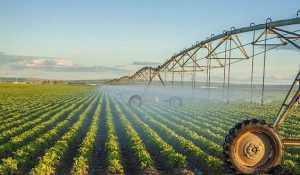
Prime Minister of Ukraine Denys Shmyhal believes that Ukraine can strengthen its position in the world agricultural markets if it extends the area of irrigated land, the government’s press service reports.
“Strengthening the leadership position of Ukraine in agricultural markets in the world is possible subject to an increase in irrigated land. Ukraine has a great potential in the development of the irrigated agriculture system, but the available capacity is used only by 25%. Therefore, we must increase the irrigation area by modernizing existing irrigation systems and building drip irrigation systems,” the prime minister said.
He noted that such measures will increase the yield in Kherson region by at least 2.5 times, which will contribute to GDP growth and create new jobs.
“Kherson region has the best preserved water management complex and the largest areas under drip irrigation are concentrated. Therefore, it can become an example in the construction of new and modern irrigation systems,” he said.
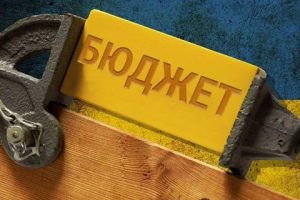
The deficit of the national budget of Ukraine amounted to UAH 40 billion in January-August 2020, the Finance Ministry said citing recent data of the State Treasury Service of Ukraine.
The deficit of the general fund totaled UAH 51 billion.
According to data of the State Treasury Service, expenses for the general fund amounted to UAH 646.6 billion, or 87.4% of the reporting period’s breakdown.
“A total of UAH 208 billion was raised from issuing government domestic loan bonds for financing state debt – 13.2% of the plan, including UAH 84.6 billion or $2.4 billion and EUR7 million from government domestic loan bond issues denominated in foreign currencies,” the ministry said.
Some UAH 170.3 billion was raised from external sources, which corresponds to the plan, including UAH 55.4 billion from placement of 12-year eurobonds worth $2 billion at 7.253% per annum, UAH 55.2 billion from the first tranche from the IMF in the framework of the 2020 Stand-By Arrangement, UAH 33.8 billion from placing ten-year eurobonds worth EUR1.25 billion at 4.375% per annum, UAH 15 billion in macro-financial assistance funds from the European Union, and a loan of UAH 1.35 billion from the International Bank for Reconstruction and Development in the framework of the project “Modernization of the Social Support System.”
A total of UAH 275 billion was allocated for paying off state debt, which is 99.9% of the amount planned.
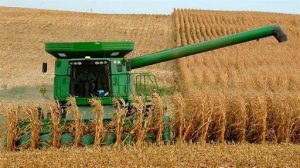
Ukraine since the beginning of the new 2020/2021 marketing year (MY, July-June) and as of September 11 had exported 9.21 million tonnes of grain and legumes, which is 1.14 million tonnes less (due to corn) than on this date in the past MY.
According to the information and analytical portal of the agro-industrial complex of Ukraine, to date, 6.17 million tonnes of wheat, 2.4 million tonnes of barley and 610,000 tonnes of corn have been exported.
As of September 11 this year, 40,200 tonnes of flour were also exported.
As reported, Ukraine exported a record 57.2 million tonnes of grains, legumes and flour in the 2019/2020 MY, which is 13.5% more than in the previous MY.
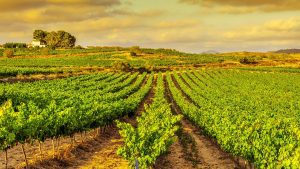
The Ministry of Economic Development, Trade and Agriculture of Ukraine has signed a memorandum of cooperation in the field of agriculture with the Ministry of Agriculture, Fisheries and Food of Spain.
According to Deputy Minister of Economic Development, Trade and Agriculture of Ukraine Taras Kachka, it took three years for Ukraine to sign this memorandum, the document is the basis for a structural agrarian dialogue.
“If we want from Brussels a qualitatively different access to agricultural products, we need a common vision of agricultural development with each EU member state. This is the main goal of our structural dialogue on agriculture with Spain,” Kachka said.
He indicated that Ukraine intends to maintain an agrarian dialogue with all other member states.
“Now we have 17 memorandums of cooperation with the EU member states. Most of these dialogues are alive,” the deputy minister noted.
Kachka said that the signed memorandum is a typical document on cooperation, but extremely important for Ukraine.
According to him, Ukraine is the largest supplier of agricultural products for Spain. In the structure of $ 840 million of exports to Spain since the beginning of the year, two-thirds is corn and oil. Ukraine is also a key supplier for Spanish livestock production.
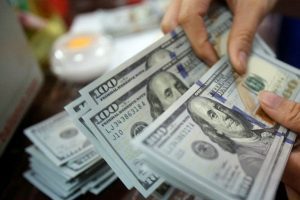
The volume of cash sales by the population in August 2020 exceeded the purchase volume by $151.2 million, according to the website of the National Bank of Ukraine (NBU).
According to the regulator, in August compared to July of this year, Ukrainians reduced the sale of foreign exchange by 6.2%, to $1.4 billion in equivalent, and also reduced the purchase by 1.8%, to $1.3 billion in equivalent.
In general, over the eight months of 2020, the volume of sales ($10.2 billion) of cash currency prevailed over the volume of purchases ($9 billion), the difference between which was $1.1 billion, according to the NBU data.

Investments in the construction of a multifunctional e-sports arena with a capacity of 10,000 people in Kyiv will amount to $40 million, the co-founder of the Ukrainian multi-gaming e-sports organization Natus Vincere (NAVI), the founder of the DreamTeam gaming platform, Oleksandr Kokhanovsky, has said.
“We plan to build a multifunctional e-sports arena for $40 million, which will accommodate 10,000 people. It will be located in the center of Kyiv. There will be not only e-sports, but also ordinary sports, concerts, events, exhibitions, conferences there. The country does not yet have such a platform,” he said at the Kyiv Investment Forum.
According to him, Dnipro hotel in conjunction with the e-sports arena will allow holding up to 16 major e-sports events in Kyiv and will provide about 100,000 tourists annually. In addition, revenues to the local budget from tourist tax alone will amount to about UAH 40 million per year, the businessman added.
“Our main idea is that when we have a hotel and an arena, it will become a unique competitive advantage in order to participate in tenders for computer games developers for holding events. We will be able to receive from eight to 16 top events per year,” he explained.
Earlier, Kokhanovsky announced plans to reconstruct Dnipro hotel in one and a half to two years, having invested about $20 million in the project. According to the founder of NAVI, Smartland LLC, as one of the project partners, will be responsible for the management of real estate.
As reported, Smartland LLC bought Kyiv-based hotel Dnipro at an online auction for UAH 1.1 billion.